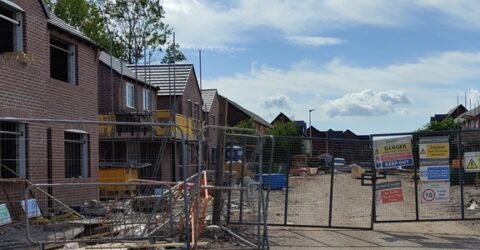Is there any need for broadband speeds faster than 1Gbps?
The prospect of broadband speeds faster than 1Gbps might seem appealing, but there’s little benefit to consumers.

As the country prepares for a new political era, one of the few things to have demonstrably improved over the last decade is the nation’s internet speeds.
In 2010, when the Conservative-Liberal Democrat coalition came to power, average UK internet speeds stood at 3.8Mbps. Today, that figure is around 100Mbps.
Any full fibre broadband connections faster than the 65Mbps speeds Fibre to the Cabinet connections can deliver should be fine for most households.
Yet this poses a question.
Why are most new homes now being built with gigabit connections, when few people with a 100Mbps line would ever encounter buffering or delays in accessing the internet?
In truth, there’s a supplementary question: with very few gigabit broadband connections having to break sweat, what possible need could there be for broadband speeds faster than 1Gbps?
Gig economy
Earlier this year, full fibre pioneer Virgin Media introduced a 2Gbps home broadband package.
In doing so, they followed in the footsteps of several regional altnets who have already brought 2Gbps broadband packages to market. One or two offer even faster line speeds.
It’s worth noting that the standard Virgin Media package isn’t symmetrical, with 200Mbps upload speeds. You can make the connection symmetrical, but at an additional monthly cost.
Again, it’s hard to imagine anyone really needing 2Gbps upload speeds, especially when prices can be several times higher per month than a ‘basic’ full fibre service.
One explanation for this overcapacity includes futureproofing. The cost of upgrading dial-up phone lines to FTTC and then FTTP connections has been considerable.
The ISPs argue it makes more sense to ensure today’s infrastructure is suitable for tomorrow’s (possible) needs – 8K content, for instance.
Although it’s unlikely any computer game would ever require anything close to gigabit data transfers, 2030s RPGs might tax a slower connection that’s also handling streaming and IoT devices.
The growth of home working, multi-generational households and boomerang kids will also affect how much data individual households need their broadband connection to handle.
ISPs can’t realistically predict in 2024 how much data households might be generating or downloading by 2034, so it makes sense to install fibre cabling with the highest throughput.
Future perfect?
Of course, any number of factors might render the race for broadband speeds faster than 1Gbps moot.
New technology may render fixed line broadband obsolete. Future 5G or 6G networks could provide a universal connection to all devices, both inside and outside the home.
Household bandwidth consumption might plateau as consumers accept today’s standards and performance, just as few people feel the need to upgrade working HD TVs to 4K units.
The once breakneck pace of technological innovation has slowed to a crawl in recent years, so there may not be ever more bandwidth-hungry technologies emerging in the coming years.
We might even scale back our internet use as social media dangers, screen time harm and living costs see consumers cancelling streaming media accounts and spending more time offline.
The growing numbers of consumers buying dumbphones, leaving social media and rediscovering more traditional pastimes does suggest we’ve reached peak internet.
Or perhaps tomorrow’s lives will be lived in an augmented reality world where everything happens through a headset needing lightning-fast connectivity and negligible latency.
At least if this nightmare Ready Player One scenario does come true, we’ll have the broadband infrastructure to cope with it…






